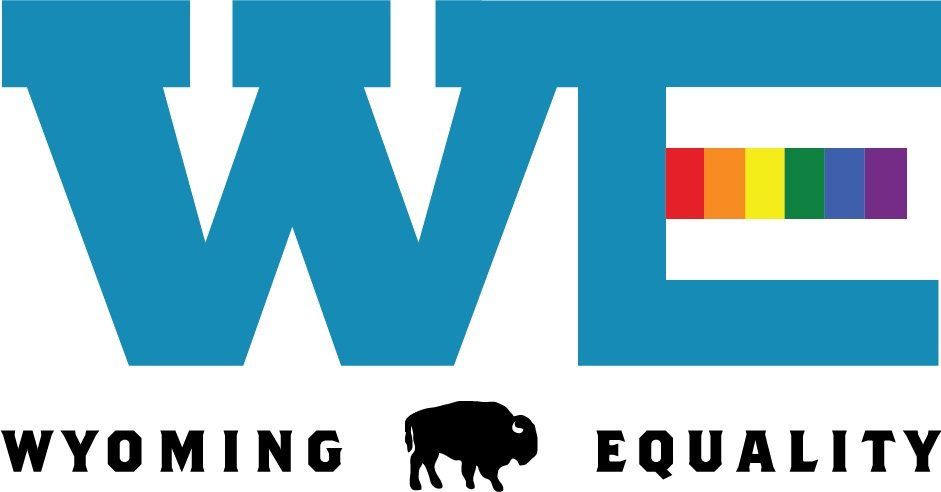United Voice: The Wyoming Equality Magazine
March 2023 Issue
RESEARCH REPORT
Queer on the Frontier:
Growing Up LGBTQ+ in the Rural West
Dr. Jennifer Tabler, University of Wyoming (jtabler@uwyo.edu)
Dr. Rachel M. Schmitz, Oklahoma State University (rachel.schmitz@okstate.edu)
More and more research is being conducted on the experiences of queer people in our neck of the woods – on what it means to be “Queer on the Frontier,” to borrow Drs. Tabler’s and Schmitz’s title. When we think of research, we often think of numbers, figures, and statistics. That kind of quantitative research can be a powerful tool in representing our experience. But there are dimensions that it misses.
Research projects like “Queer on the Frontier” delve into the richness of personal experience and circumstances. Through in-depth interviews with over 60 queer adults from across the rural American West, the researchers have identified and fleshed out some common themes. This kind of research puts the participants first. Themes emerge from the narratives offered by interviewees; their values drive research findings. The goal is a view of their “world” as they grew in the American West.
Photographs complement interview findings. The researchers work with Bailey Russel, who practices person-centered portraiture. Bailey uses the contents of interviews, and the input of subjects themselves, to create portraits that reflect how subjects want to be depicted.
Drs. Tabler’s and Schmitz’s research is still underway. In fact, if you are a midlife/older LGBTQ+ adult (35 or older) who is living in rural places in Wyoming or the mountain west region, you can become involved and help shape this important project. Simply email Daniel@WyomingEquality.org to be put in touch with the researcher.
Even though it’s still going on, the research already offers some compelling findings. The following is taken from a report provided by Drs. Tabler and Schmitz. This content was edited to fit into the UV format.
Queerness in the American West has a long history.
Xander’s portrait, by Bailey Russel.
More to Explore…
Participants were highly critical of the limitations and challenges created by inadequate educational resources for young people in the region.
Maple, a 24-year-old femme/gender-questioning (jokingly stated she was “trans-ish non-binary with a ‘La Croix hint of girl’”) and pansexual-identifying white person from Elizabeth, CO (population ~1,125) remarked:
“The hardest thing about growing up [queer] in a rural environment is access to accurate information... literally until I left my [evangelical] church the language for [being queer] was actively being stripped from me, even by my parents and later on by my church... it took me a long time to unpack all that because the language had been taken away from me for so much of my life.”
Given the contemporary public discourse around removing LGBTQ history and language from our public school systems, such as the ongoing “Don’t Say Gay” bill in Florida (Paley & Saunders, 2022), signals ongoing efforts for intentional queer erasure in our public school systems (Barrett & Bound, 2015).
Heteronormativity and cisnormativity are assumed and actively taught, while queer experiences and identities are erased, thereby delaying young LGBTQ peoples’ ability to develop a true sense of self. Some participants noted that this is a type of cultural gaslighting, developing a hesitancy around self-acceptance or exploration. The internet, LGBTQ2S+-affirming clubs, and emerging friend networks were often their first exposure to LGBTQ issues or experiences.
Participants also noted that rural-residing youth share a sense of restlessness and a ubiquitous desire to escape the mundane of rural life, regardless of LGBTQ2S+ identity.
Xander (Rock Springs, WY) argued that most of their peers were bonded through their mutual desire to escape to a larger town by attending university, located in the more “exciting” Laramie, WY (population ~ 33,000). However, Sarah, an asexual-identifying Asian American woman who grew up in Laramie, described Laramie as a “small town with nothing in it,” remarking that you have to drive to Colorado (1 hour away) for basic amenities, such as a Target store or an Asian grocery store. Xander also later reflected, “all of Wyoming is rural, even the parts with people,” illustrating how rurality can be a feeling—isolation, restlessness—and not just a description of somewhere with low population density or agricultural industry.
In addition, participants expressed an immense amount of joy and pride around finally coming to terms with their rural roots as well as LGBTQ identities, and being able to live authentically.
Overall, participants desired greater representation of rural experiences in discussion of LGBTQ2S+ history and experiences.
Santi, a 25-year-old Latina trans woman from Rawlins, WY (population ~9,000), remarked: “So many people have struggled, but here we are. We are doing the damn thing. My story is unique—well it is unique—but there are so many people out there that don’t have the opportunity to [share their stories].”
Santi elaborated how she was from “nowhere, Wyoming” but still made history by being the first trans woman in collegiate cheerleading.
Participants value this research because it has the possibility to establish the representation they desired, but did not have, growing up queer on the American frontier.
(for a full-text article, email Daniel@WyomingEquality.org).



